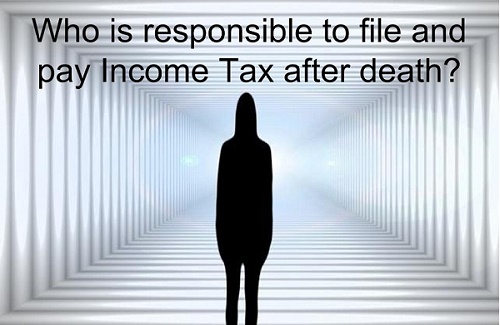When a loved one passes away, the last thing you want to worry about is the tax implications of their death benefits. However, understanding how these benefits are taxed and who is responsible for claiming them on their income tax return can save you from potential headaches down the line. In this comprehensive guide, we’ll explore the tax treatment of death benefits and provide clarity on who should claim them, ensuring you navigate this sensitive matter with confidence.
Understanding Death Benefits
Death benefits are payments made to designated beneficiaries upon the passing of an insured individual. These benefits can come from various sources, including life insurance policies, annuities, and pension plans. The most common type of death benefit is the payout from a life insurance policy, which is intended to provide financial support to the beneficiaries.
Tax Treatment of Death Benefits
The taxation of death benefits depends on the type of policy or plan from which they originate. Here’s a breakdown of how different death benefits are treated for tax purposes:
-
Life Insurance Death Benefits
- Generally, life insurance death benefits received due to the death of the insured person are not includable in the beneficiary’s gross income and do not need to be reported on their income tax return.
- However, any interest earned on the death benefit proceeds after they are received is considered taxable income and must be reported as interest received.
-
Annuity Death Benefits
- Death benefits received from an annuity contract may be subject to income tax, depending on the type of annuity and the specific circumstances.
- The taxable portion of the death benefit is typically based on the difference between the total amount received and the investment in the contract (the premiums paid).
- Beneficiaries may need to report the taxable portion of the annuity death benefit as ordinary income on their tax return.
-
Pension Death Benefits
- Death benefits from pension plans are treated differently from life insurance and annuity benefits.
- The taxable portion of the death benefit depends on the type of pension plan and the relationship between the beneficiary and the deceased.
- Beneficiaries may need to report the taxable portion of the pension death benefit as ordinary income on their tax return.
It’s important to note that if the death benefit is paid to the deceased’s estate instead of directly to the beneficiaries, it may be subject to federal or state estate taxes if the value of the estate exceeds the applicable exemption amount.
Who Claims the Death Benefit on Income Tax?
The individual responsible for claiming the death benefit on their income tax return depends on the type of benefit and the specific circumstances. Here are some general guidelines:
-
Life Insurance Death Benefits: If the life insurance death benefit is paid in a lump sum and is not subject to income tax, the beneficiary(ies) typically do not need to report it on their income tax return. However, if the benefit is paid in installments that include interest, the beneficiary(ies) must report the interest portion as taxable income.
-
Annuity Death Benefits: The beneficiary(ies) of an annuity contract must report the taxable portion of the death benefit as ordinary income on their individual income tax return in the year it is received.
-
Pension Death Benefits: The beneficiary(ies) of a pension plan must report the taxable portion of the death benefit as ordinary income on their individual income tax return in the year it is received.
If there are multiple beneficiaries, each beneficiary is responsible for reporting their respective share of the taxable portion of the death benefit on their individual income tax return.
It’s important to consult with a qualified tax professional or financial advisor to ensure accurate reporting and compliance with tax laws and regulations specific to your situation.
Documentation and Reporting Requirements
To claim a death benefit on your income tax return, you will need to provide certain documentation and information, including:
- A copy of the death certificate
- Proof of your relationship to the deceased (if applicable)
- Documentation from the insurance company, annuity provider, or pension plan administrator detailing the death benefit amount and any taxable portions
- Form 1099-R (for distributions from annuities, pensions, and certain life insurance contracts)
- Form 1099-INT (for interest earned on death benefit proceeds)
Additionally, it’s crucial to keep accurate records of any expenses related to the death benefit, such as legal fees or financial advisor fees, as these expenses may be tax-deductible.
Seek Professional Guidance
The tax implications of death benefits can be complex, especially when dealing with multiple beneficiaries, different types of benefits, and estate tax considerations. It’s advisable to seek guidance from a qualified tax professional or financial advisor who can provide personalized advice based on your specific circumstances.
By understanding the tax treatment of death benefits and who is responsible for claiming them on income tax returns, you can navigate this sensitive matter with confidence and ensure compliance with tax laws and regulations.
Death Benefit: How It’s Taxed and Who Can Claim It
FAQ
Do you have to report death benefit on taxes?
Who claims the death benefit?
Who is the recipient of the death benefit?
Do you pay taxes on life insurance death benefit?

